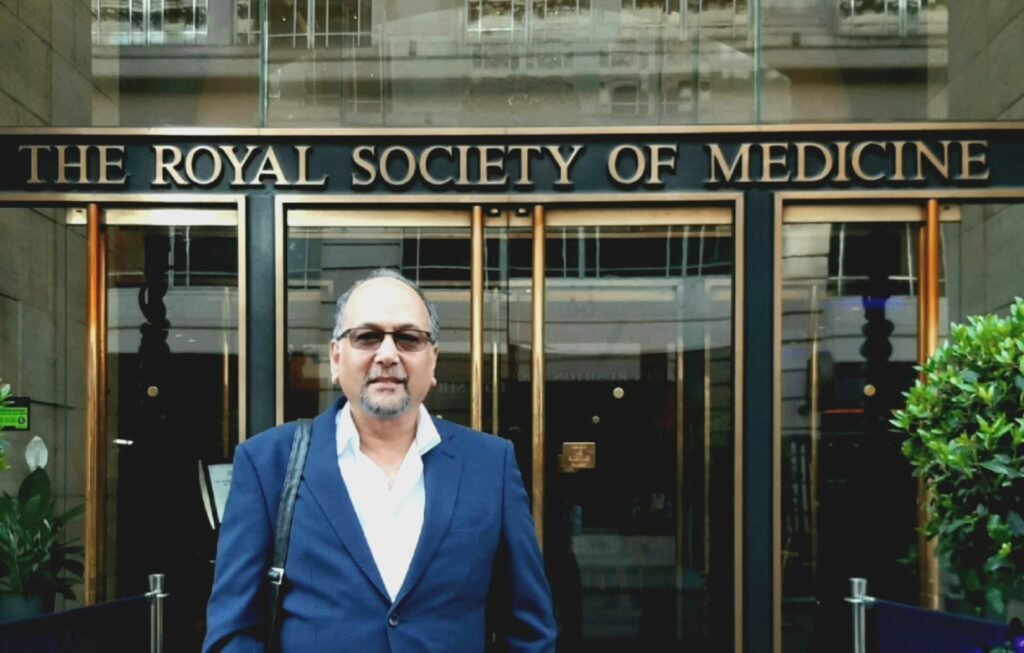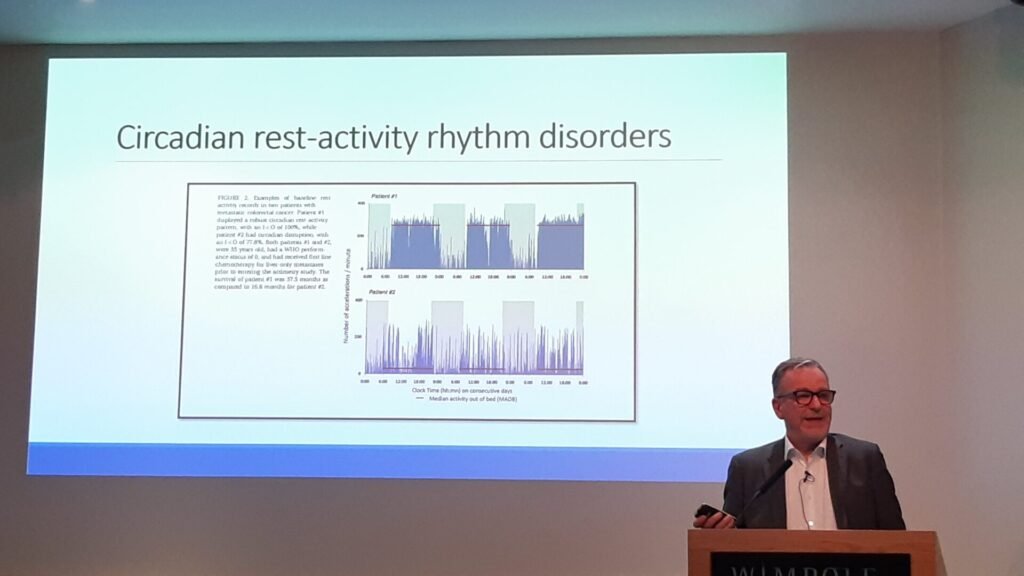At the Royal Society of Medicine ..



This Tuesday (070524), I attended a set of lectures at the RSM (1 Wimpole Street, London, just off Oxford Street), where I am an Associate Member, I have been interested in medical research for many years now, so attending their lectures is always a major bonus for me; I am a member here due to my professional hypnotherapy links, noting that Hypnotherapy was accredited as an orthodox medical treatment by the British Medical Association (BMA) way back in 1892, and further ratified in 1955 (and 1958 in the US, via the AMA). This presentation was on Surviving Cancer, by three top specialists in Cancer Care, and was very insightful and frank, on the challenges they faced, such as funding, shortage of other resources and also limited by what science can currently offer.
The role of stress and Cortisol* in cancer development was mentioned by them and how relaxation therapies, such as yoga and qigong, can help people in their recovery from cancer, the incidence of which has really risen this past decade; interestingly, regardless of socio-economic status. Mindfulness was mentioned as a useful way for patients to lower their pain, as the pain levels for many who are cancer-free can often be very high, as a consequence of the chemotherapy, radiotherapy and surgery they have had.
*Cortisol is a steroid hormone that your adrenal glands, the endocrine glands on top of your kidneys, produce and release. Cortisol affects several aspects of your body and mainly helps regulate your body’s response to stress (with the fight or flight response). In times of high stress, and frequent release of cortisol, heightened levels can totally suppress the immune function for a while, and due to this, it can set off many health problems, which can include cardiovascular issues and many cancers; thus practising relaxation daily helps limit cortisol.
A healthy attitude and positive expectation to their full recovery was also a key factor for recovering cancer patients – the professors noted that a patient’s psychological mindset to cancer, and other illnesses, is very important, even pivotal, to their continuing wellbeing and recovery, both physically and mentally.
The professors were well aware of how well hypnotherapy can help in the control and management of pain (it is very reliably evidence-based), but felt that lack of NHS funding for this treatment option made it difficult for some patients to undertake so their only recourse was to provide strong painkillers, often very strong opioids – at doses far greater than even seen on the streets! Sadly. These doses are increased as the body gets used to them (called Tolerance), and can lead to serious drug-dependence.
Opioids are highly addictive, they trigger the release of dopamine and endorphins, to make you feel good; endorphins are also the body’s natural painkillers (and are less addictive, being naturally produced). They are released in the brain by the hypothalamus and pituitary gland in response to pain or stress (and exercise too), this group of hormones both relieve pain and create a general feeling of well-being.
Examples of synthetic opioids include codeine (including co-codamol), tramadol, morphine, heroin, oxycodone, hydrocodone and fentanyl (perhaps the most powerful). The side effects of opioid use can include drowsiness, constipation, euphoria, nausea, vomiting and slowed breathing. Synthetic opioids, used in pain control, possess a high risk of addiction (sometimes leading to death) so need to be planned and managed properly by a patient’s doctor. (Source: https://www.gov.uk/guidance/opioid-medicines-and-the-risk-of-addiction)
The importance of sleeping well was mentioned as a generic advice all-round, and at the right times, as circadian rhythms are very important to health and being. ‘Circadian rhythm is the 24-hour internal clock in our brain that regulates cycles of alertness and sleepiness by responding to light changes in our environment. Our physiology and behaviour are shaped by the Earth’s rotation around its axis. Sleep is a vital activity that every organism needs to function properly. The lack of sleep or poor sleep patterns can have significant impacts on a variety of essential day to day functions. Memory consolidation, body healing, and metabolic regulation occur during the sleep cycle. This sleep-wake cycle can influence eating habits, digestion, body temperature, hormone release, and other bodily functions. Detrimental effects on sleep can negatively affect a person’s ability to properly function and can result in many disorders.’ (Source: https://www.ncbi.nlm.nih.gov/books/NBK519507/ )
NB: Do note that if you are on any of these painkillers you must speak with your GP if you wish to adjust your dosage or even if you wish to review your need for them, it is very risky to do this without proper consultation with your medical professional (GP or specialist). The notes above are purely for information, in relation to post cancer-care, they are not meant to be prescriptive. This blog article does not constitute or offer medical advice, it simply provides information available in the public domain.

